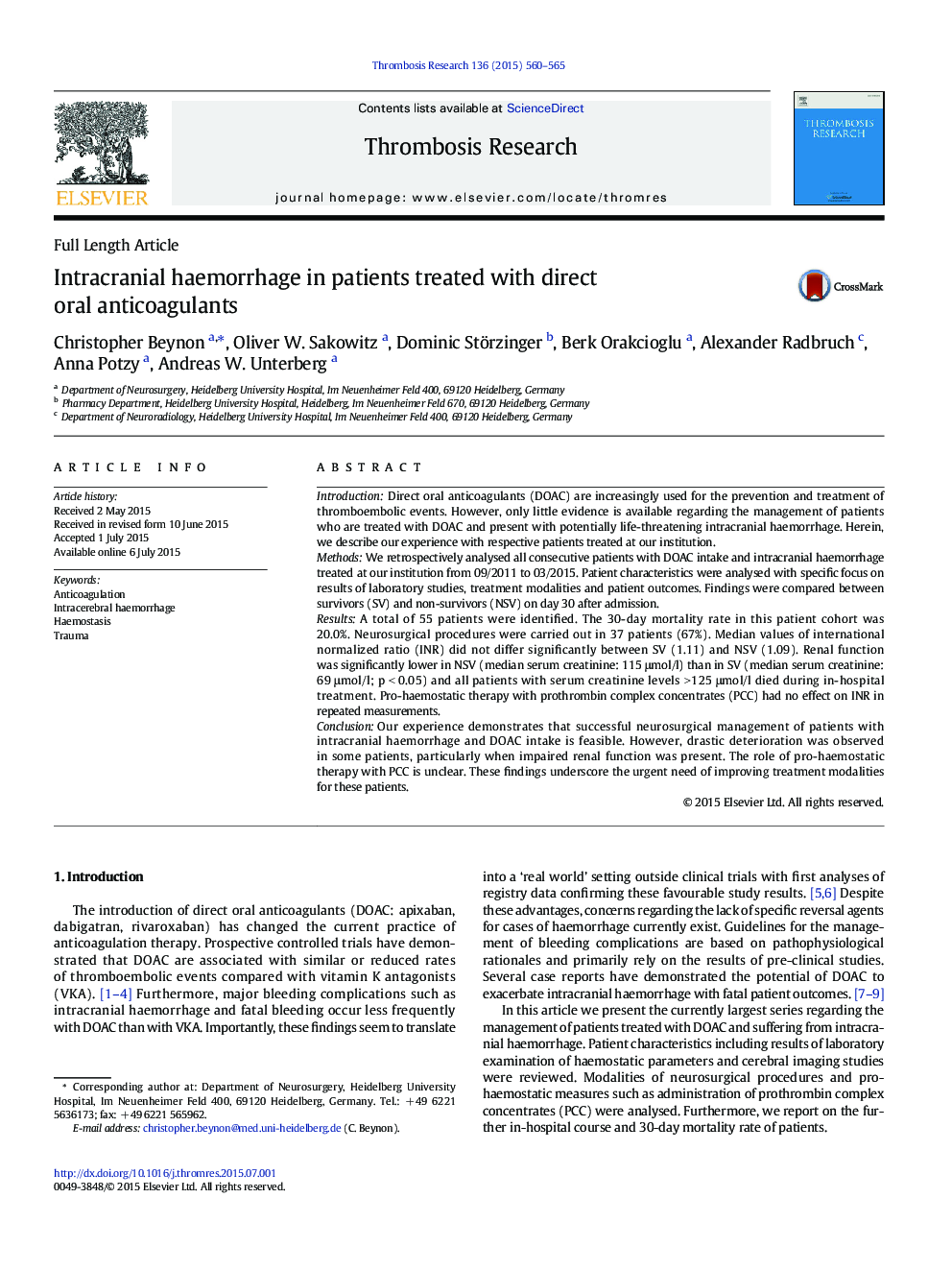| Article ID | Journal | Published Year | Pages | File Type |
|---|---|---|---|---|
| 3027068 | Thrombosis Research | 2015 | 6 Pages |
•Antidotes for bleeding complications associated with DOAC are not yet available•We report on 55 patients with intracranial haemorrhage during treatment with DOAC•30-day mortality was associated with impaired renal function•Pro-haemostatic therapy had no impact on conventional parameters of haemostasis
IntroductionDirect oral anticoagulants (DOAC) are increasingly used for the prevention and treatment of thromboembolic events. However, only little evidence is available regarding the management of patients who are treated with DOAC and present with potentially life-threatening intracranial haemorrhage. Herein, we describe our experience with respective patients treated at our institution.MethodsWe retrospectively analysed all consecutive patients with DOAC intake and intracranial haemorrhage treated at our institution from 09/2011 to 03/2015. Patient characteristics were analysed with specific focus on results of laboratory studies, treatment modalities and patient outcomes. Findings were compared between survivors (SV) and non-survivors (NSV) on day 30 after admission.ResultsA total of 55 patients were identified. The 30-day mortality rate in this patient cohort was 20.0%. Neurosurgical procedures were carried out in 37 patients (67%). Median values of international normalized ratio (INR) did not differ significantly between SV (1.11) and NSV (1.09). Renal function was significantly lower in NSV (median serum creatinine: 115 μmol/l) than in SV (median serum creatinine: 69 μmol/l; p < 0.05) and all patients with serum creatinine levels > 125 μmol/l died during in-hospital treatment. Pro-haemostatic therapy with prothrombin complex concentrates (PCC) had no effect on INR in repeated measurements.ConclusionOur experience demonstrates that successful neurosurgical management of patients with intracranial haemorrhage and DOAC intake is feasible. However, drastic deterioration was observed in some patients, particularly when impaired renal function was present. The role of pro-haemostatic therapy with PCC is unclear. These findings underscore the urgent need of improving treatment modalities for these patients.
